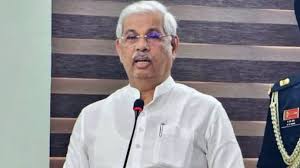Kerala ‘pada pooja’ row: Governor says part of culture

Thiruvananthapuram, July 14, 2025 — A traditional ritual performed for Kerala Governor Arif Mohammed Khan has sparked nationwide controversy. The event involved women washing the Governor’s feet, a ritual known as Pada Pooja. It took place during a public ceremony and was quickly criticized by political leaders and civil rights activists.
The Governor defended the ritual, calling it a cultural expression of devotion. He said the act was voluntary and rooted in Indian spiritual traditions.
What Happened: The Ritual That Triggered the Row
During a recent event, visuals showed several women pouring water over the Governor’s feet. They wiped his feet with cloth and offered prayers. The ritual, usually reserved for saints or spiritual gurus, drew immediate attention. This time, it was performed for the constitutional head of Kerala, raising serious questions.
Many called it a feudal practice unfit for a modern democracy. Social media buzzed with heated discussions and sharp reactions.
Governor’s Response: “It’s Our Culture”
Governor Arif Mohammed Khan addressed the criticism head-on. He said he never requested the ritual. According to him, it was a spontaneous act by devotees who came out of love and respect.
“This is part of Indian culture. Washing someone’s feet is an act of humility and reverence. It should not be misinterpreted,” he said.
He added that those criticizing the ritual were disconnected from Indian traditions. The Governor insisted the ceremony was not forced or staged.
Opposition Slams the Gesture
Political parties in Kerala strongly condemned the ritual. Congress leader Ramesh Chennithala said the act violated democratic values. He stated that no public official should allow such outdated practices.
“We live in a constitutional democracy. There is no place for such feudal acts,” he said.
The CPI(M), Kerala’s ruling party, also expressed disappointment. They accused the Governor of encouraging rituals that clash with modern governance. Some leaders even questioned whether the women truly acted freely.
BJP Comes to the Governor’s Defense
In contrast, the BJP supported the Governor. Kerala BJP President K. Surendran dismissed the criticism. He said the opposition was twisting a traditional act into a political issue.
“This is Indian tradition. People are free to express their devotion,” Surendran said.
Other BJP leaders echoed similar views. They claimed the ritual symbolized cultural pride, not submission.
Tradition vs Democracy: The Larger Debate
The incident has revived the long-running debate over the role of culture in public life. Can holders of public office participate in such rituals? Does cultural expression conflict with constitutional responsibilities?
Experts believe the line is blurry. While the Constitution protects religious freedom, it also demands public neutrality from state officials.
Political analyst Dr. Leena Sreedhar explained:
“Even if the act was voluntary, the optics matter. Public officials must act with caution. Their behavior reflects on the institutions they represent.”
Gender and Power: Another Layer of Concern
Some critics focused on the gender aspect of the ritual. They pointed out that women were performing the act, while a male leader received the honor. Activists said this reinforced traditional hierarchies.
Feminist groups urged leaders to discourage such public acts. They stressed that devotion should never look like subordination — especially in a democratic setup.
Social Media Reactions: Sharp Divide
The controversy also played out online. While some praised the Governor for respecting Indian values, others slammed the ritual as undignified for a public official.
One user posted on X:
“This isn’t devotion, it’s regression. We shouldn’t see elected leaders treated like gods.”
Another user disagreed:
“Respecting tradition doesn’t mean rejecting democracy. These gestures have cultural meaning.”
Conclusion: Balancing Culture and Constitution
The ‘Pada Pooja’ incident has once again highlighted the tension between faith and governance. Governor Khan may believe the ritual was harmless. But many view it as crossing a line between personal belief and public responsibility.
India is a land of rich traditions. At the same time, it is a constitutional democracy. When both worlds collide in public view, questions are bound to arise. For now, the debate continues — and may shape how we define respect, power, and equality in modern India.






